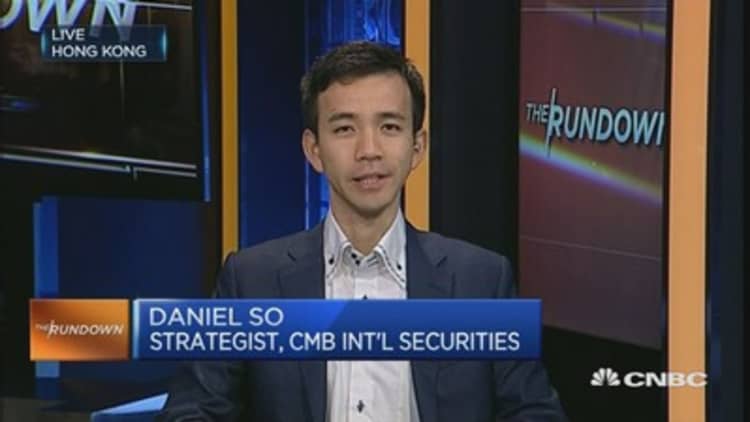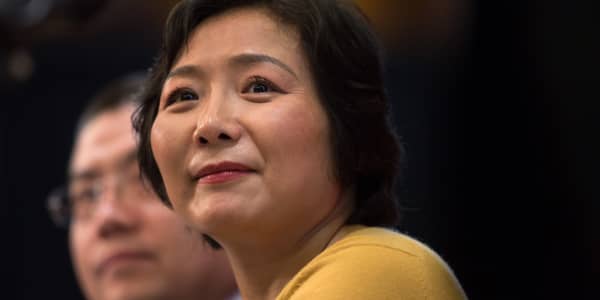
Hong Kong's unaffordable housing is the stuff of legend, but some analysts see signs the property bubble's days are numbered.
"(The) affordability ratio and price-to-income ratio and panic buying behavior earlier this year all suggest that we are still in a bubble," Daniel So, a strategist at CMB International Securities, told CNBC. But he added: "We have reached the turning point," as banks begin to cut property valuations and developers cut sales prices on new dwellings.
A few years ago, so-called primary sales were priced at a 20-30 percent premium to secondary sales, but now there's not much difference between the two, So said.
The cost of housing in the special administrative region of China was a source of deep discontent even before Britain handed over the city to the mainland in 1997.
The Hong Kong Government, sensing increasing public anger over the issue, have introduced numerous cooling measures in recent years, including doubling the stamp duty, or property transaction tax, payable by many buyers, mainly non-permanent residents. It also raised down payment requirements, in some cases to 60 percent of the sales price.
But prices have still more than doubled since 2009, consistently ranking the city among the world's most expensive property markets.
Demographia's International Housing Affordability survey of 2014 prices found that Hong Kong housing was "severely unaffordable," with median property prices around 17 times the median household income.
Concerns over that the protectorate's property market could crash have taken on new life as expectations increased that the U.S. Federal Reserve would hike interest rates. A Fed rate hike now appears a serious possibly before the end of 2015.
That's likely to push up mortgage rates in Hong Kong, because the city's currency is pegged to the dollar, tethering the two countries' monetary policies. Hong Kong mortgages usually have adjustable rates.
But So is skeptical of dramatic bursting-bubble scenarios.
"It's going to deflate orderly unless we have another Lehman Brothers-type financical crisis," he said, adding that he expected prices to fall about 15-20 percent from their peak.
So noted that developers were "a bit desperate" to sell their inventory, while secondary sales were stagnant amid a tug of war between buyers expecting big price cuts and sellers sticking to their guns. But he indicated these factors were offset by the gentle path the Fed is expected to take in tightening monetary policy.
"Homeowners, as long as they still have a job, are not quite willing to slash prices," he said. "Although there are risks coming, like a Federal Reserve interest rate hike, the magnitude of the rate hike will be very mild this time. It could be the mildest rate hike cycle in the history of the Federal Reserve. So 50bps or 100bps in interest rate hikes won't make their mortgage payment unaffordable."
There is a lot of fresh housing supply on the cards. The government has said it wants to get a record 80,000 new flats on the market by 2019. In September, CLSA estimated that 15,000-18,000 saleable units would hit the market over the next couple of years, up 40 percent from the 2013-15 period.
But So said that was unlikely to set off a sudden slump in the housing market.
"It's only a balanced supply-demand dynamic compared to many years of supply shortage," he said. "I don't think the supply is going to be oversupply."
Indeed, some commentators even expect a sales pick-up soon.
Real estate consultancy Knight Frank expects the number of properties changing hands to increase by 10-15 percent in 2016, in the wake of what Knight Frank estimates will be 20,000-plus dwellings completed next year, up 50 percent on-year. The consultancy expects prices will fall around 5-10 percent in 2016, a relatively benign decrease.
"Increasing supply, rising interest rates and slower economic growth in China could motivate developers and landlords to cut prices," Knight Frank said in a note this week. At the same time, "more flat choices, both primary and secondary, are expected to release more pent-up purchasing power, especially from end-users."








